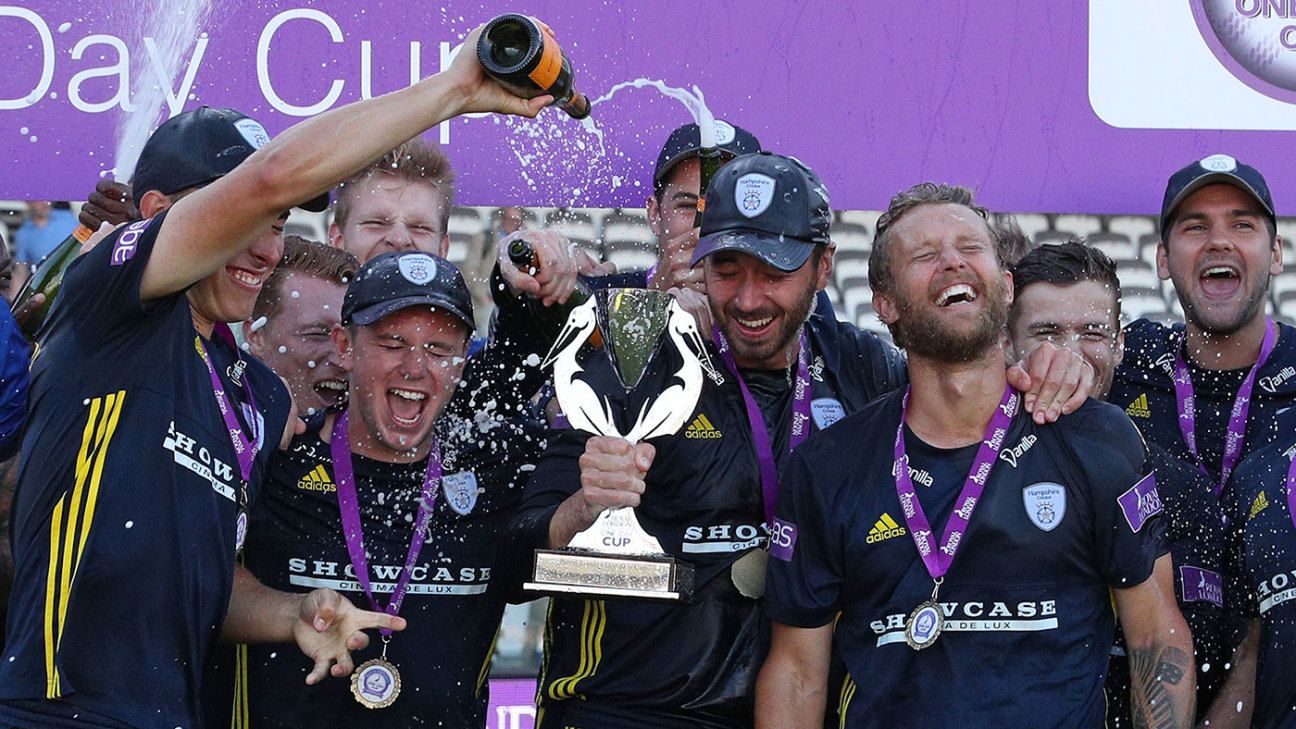
This is the summer that the ECB hopes will help "inspire a generation" of cricket fans, with England jostling to the front of the pack as favourites for a home World Cup. However, it could also be a last hurrah for one-day cricket in the UK, with the domestic 50-over cup set to become a "development competition" from 2020 onwards.
Gordon Hollins, the new managing director of county cricket, conceded that downgrading the 50-over tournament was "a price that has to be paid" in order to make room for The Hundred. Both competitions are set to run side by side, with the best England-qualified players involved in the new format, but Hollins said it was essential that the ECB came up with something to "make cricket cooler to more people".
Tom Harrison, the ECB chief executive, has previously claimed that The Hundred will not impact on the success of England's ODI team, and while Hollins suggested that 50-over batting skills could be honed in the shorter formats, he confirmed that the domestic cup would become a breeding ground for younger players.
The domestic List A competition is also likely to see the involvement in some form of the "national counties" - as the minor counties have been rebranded - in an attempt to further aid the spread of the game.
"I don't buy that [county cricket] is being devalued," Hollins said. "It might be different. Clearly the 50-over competition will become under this model a development competition. Nobody is going to deny that. But that's a price that has to be paid to fit the different formats in. There's a plus, too, in that you get the next round of players coming through.
"What we're also doing in that competition is going back to having warm-up matches against some of the national counties. A lot of the feedback I've heard over the last couple of years is, it was great when we had the NatWest Trophy/Gillette Cup, where you had Devon hosting Yorkshire in the first round and so on. We're introducing that in the County Partnership Agreement, where a first-class county will go to a national county. And I think that connects the first-class game with a broader audience, too."
Hollins said that while traditional county supporters were part of what he termed "the core" - devoted followers of the game - the goal of The Hundred was to further increase the base from which counties, and England, can recruit in the future.
"What I hear most often is there are not enough: people in club cricket saying, where's our next groundsman coming from, where's our next scorer coming from, there's not enough volunteers. Therefore, for me, what The Hundred is designed to do is to generate and inspire more people to engage in our game than ever before," Hollins said.
"I genuinely believe that The Hundred plays a really important role in achieving that because if it can generate 'water-cooler moments', where people say cricket is sexy and it's engaging and inspiring more people from different audiences, then more of that comes back into the system.
"Cricket is still cool to us, and the core. But it needs to be cool to more people. What makes that challenging and really important to address is that young people now have more distractions than we did. We used to have cricket, rugby, football … That's not the case anymore. In the last round of Sport England funding, I think it was 64 sports that got funding. So by definition, there's a lot more competition for kids' time and attention and passion. That's before you start talking about these devices [mobile phones].
"There's so many distractions now, that we need to make cricket cooler to more people. And by doing that, I think everyone wins. It might not be the same as it's always been, but the world's not the same as it's always been."
Concerns have been expressed about the impact of The Hundred, with PCA chairman Daryl Mitchell warning it could threaten the viability of some of the smaller clubs. However, Hollins said that there were no plans to reduce the number of first-class counties.
He did acknowledge, though, that coming up with something entirely new had been central in securing a return for cricket on free-to-air television when the rights were negotiated in 2017 - despite the ECB denying that 100-ball cricket, which is designed to be completed in two-and-a-half hours, was a made-for-TV product.
Asked whether the BBC would have signed up to broadcasting a county T20 competition, Hollins replied: "No. You'd need to ask them [why]. But their agenda, you can see what they're doing with sport generally, around women's football, their support of the FA Cup. You can see the sort of narrative they produce."















 Phone: (800) 737. 6040
Phone: (800) 737. 6040 Fax: (800) 825 5558
Fax: (800) 825 5558 Website:
Website:  Email:
Email: 






